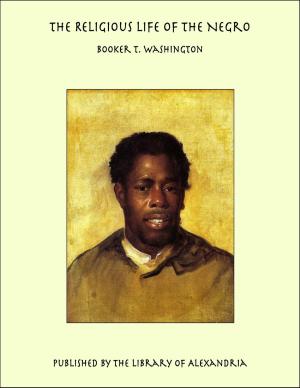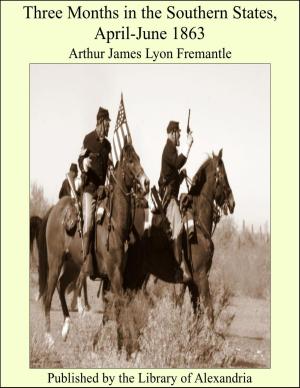The Fur-Seal's Tooth: A Story of Alaskan Adventure
Nonfiction, Religion & Spirituality, New Age, History, Fiction & Literature| Author: | Kirk Munroe | ISBN: | 9781465624611 |
| Publisher: | Library of Alexandria | Publication: | March 8, 2015 |
| Imprint: | Language: | English |
| Author: | Kirk Munroe |
| ISBN: | 9781465624611 |
| Publisher: | Library of Alexandria |
| Publication: | March 8, 2015 |
| Imprint: | |
| Language: | English |
Although the sun was shining brightly over the pleasant little British Columbian city of Victoria, and the air was filled with the flower scents and bird notes of late spring-time, at least one of the strollers along its busy streets was so decidedly unhappy that he paid no attention to sunshine, birds, or flowers. Life just then seemed a very serious and perplexing affair to Phil Ryder, and, to quote an expression that he himself had often used in regard to others, he looked as though he had lost his last friend. If any one in all that strange foreign city had been intimate enough with him to suggest this to Phil, he would have replied, “And so I have, for I have lost my last dollar, and in a strange country I don’t know of any better friend than the good old Yankee dollar.” How it all happened was this way: Phil was a New England lad, and hailed from the quaint old Connecticut town of New London. He was freckle-faced and curly-headed, not very tall, but so broad-shouldered that no one ever thought of asking him if he was travelling for his health. What with rowing, paddling, and sailing, skating and coasting, playing football until he became centre rush and captain of his school team, going on long, delightful outing trips to the Maine woods with his father, who had been the most painstaking of teachers in the useful arts of shooting, fishing, and camping out, this boy had early developed into an all-round athlete of more than ordinary attainments. With additional strength had come an increase of self-reliance, until at the age of seventeen he was about as independent and manly a young fellow as one would be apt to discover in a long day’s journey. But this very independence often led him into trouble. Like most self-reliant boys, he was inclined to place an undue value upon his own knowledge and acquirements, and to make light of those of his elders. All except his own father, whom Phil regarded as the very wisest and best of men, and whose example in all things he was most anxious to copy. And yet from this very father the boy inherited his worst fault, which was that of carelessness. Although his aunt Ruth, who had brought him up from the babyhood in which he lost his mother, made a point of providing him with a place for everything, and had almost hourly, during his whole life, impressed upon him the importance of keeping things in their places, he never yet had learned the lesson she strove so earnestly to impart. He would say, “Yes, Aunt Rue, I’ll remember,” give her a hearty kiss, and rush away with an instant forgetfulness of all she had just said. He lost and mislaid not only his own things, but those of other people, until at length no one who knew him would lend him anything of value. He forgot messages, and could not be trusted to go on errands. He was forever in hot water on account of broken engagements, and though naturally a bright student, was always in trouble over his lessons on account of having to spend most of his study hours in searching for mislaid books. Generally they were found flung into a corner of the stone wall bounding the football field, tucked carefully under the steps of the boat-house, or hidden away in some other unlikely place that no one but he would have thought of, and any one but he would have remembered.
Although the sun was shining brightly over the pleasant little British Columbian city of Victoria, and the air was filled with the flower scents and bird notes of late spring-time, at least one of the strollers along its busy streets was so decidedly unhappy that he paid no attention to sunshine, birds, or flowers. Life just then seemed a very serious and perplexing affair to Phil Ryder, and, to quote an expression that he himself had often used in regard to others, he looked as though he had lost his last friend. If any one in all that strange foreign city had been intimate enough with him to suggest this to Phil, he would have replied, “And so I have, for I have lost my last dollar, and in a strange country I don’t know of any better friend than the good old Yankee dollar.” How it all happened was this way: Phil was a New England lad, and hailed from the quaint old Connecticut town of New London. He was freckle-faced and curly-headed, not very tall, but so broad-shouldered that no one ever thought of asking him if he was travelling for his health. What with rowing, paddling, and sailing, skating and coasting, playing football until he became centre rush and captain of his school team, going on long, delightful outing trips to the Maine woods with his father, who had been the most painstaking of teachers in the useful arts of shooting, fishing, and camping out, this boy had early developed into an all-round athlete of more than ordinary attainments. With additional strength had come an increase of self-reliance, until at the age of seventeen he was about as independent and manly a young fellow as one would be apt to discover in a long day’s journey. But this very independence often led him into trouble. Like most self-reliant boys, he was inclined to place an undue value upon his own knowledge and acquirements, and to make light of those of his elders. All except his own father, whom Phil regarded as the very wisest and best of men, and whose example in all things he was most anxious to copy. And yet from this very father the boy inherited his worst fault, which was that of carelessness. Although his aunt Ruth, who had brought him up from the babyhood in which he lost his mother, made a point of providing him with a place for everything, and had almost hourly, during his whole life, impressed upon him the importance of keeping things in their places, he never yet had learned the lesson she strove so earnestly to impart. He would say, “Yes, Aunt Rue, I’ll remember,” give her a hearty kiss, and rush away with an instant forgetfulness of all she had just said. He lost and mislaid not only his own things, but those of other people, until at length no one who knew him would lend him anything of value. He forgot messages, and could not be trusted to go on errands. He was forever in hot water on account of broken engagements, and though naturally a bright student, was always in trouble over his lessons on account of having to spend most of his study hours in searching for mislaid books. Generally they were found flung into a corner of the stone wall bounding the football field, tucked carefully under the steps of the boat-house, or hidden away in some other unlikely place that no one but he would have thought of, and any one but he would have remembered.















